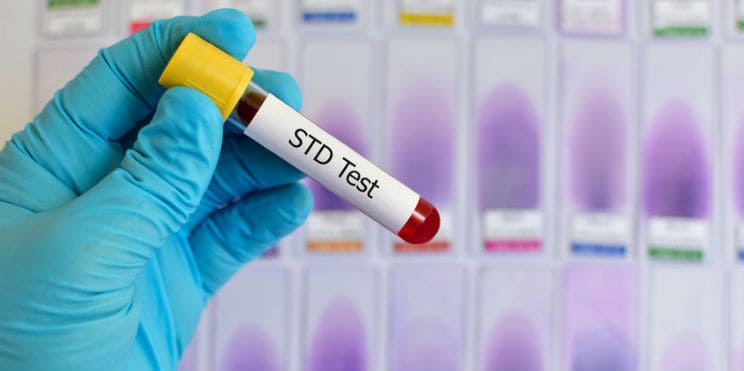As a woman, undetected sexually transmitted diseases pose a serious risk to your reproductive health. By scheduling a yearly STD test, your doctor can identify these potentially serious conditions and provide a suitable treatment.
Many sexually transmitted diseases (STD) do not have obvious symptoms, so it is critical to undergo STD testing for women on a regular basis if you are sexually active. With reported cases of STDs on the rise for the first time since 2006, it is more important then ever to be vigilant and cautious when it comes to your reproductive health. The majority of new STD cases are contracted by individuals between the ages of 15 and 24, who face an increased risk of complications from undiagnosed and untreated STDs. You can help keep your reproductive system in excellent health by being proactive with yearly STD testing for women.
Potential Complications from STDs
Undetected STDs in women can cause a range of serious health complications, from pelvic inflammatory disease to infertility. STDs can wreak havoc on your reproductive organs before worsening and impacting your overall health. Late stage syphilis, for example, causes extreme inflammation that affects the health of your liver, spleen, and skeletal system. Even if you are not exhibiting outward symptoms, such as open wounds or visible warts, you can unknowingly infect your sexual partners with STDs.
STD Testing Frequency
To protect yourself from complications caused by STDs, you should schedule an appointment with your Little Rock gynecologist for STD testing at least once a year. You should also schedule an appointment between these yearly checkups if you have unprotected sex with a new partner or suspect your partner has an STD. Any bumps, lesions, warts, or abnormal discharge warrants an immediate checkup and STD test.
Checkup Procedure
At your appointment for STD testing, your doctor will review your medical history and you will provide a urine sample. The lab will check your urine sample for signs of chlamydia and gonorrhea. You will undergo a thorough physical examination to allow your doctor to check for visible signs of STDs, such as genital warts. Once every three years, you will need to have a pap smear performed to check for abnormal cervical cancer cells caused by HPV. Your gynecologist will test for HIV, syphilis, and genital herpes by drawing blood and examining it for particular antibodies. Your doctor may also take a swab of gential sores to test for syphilis or herpes, but the results for herpes are not always conclusive with false-positive and false-negative results possible.
STD Testing Results and Treatment
If you receive positive STD results, you will need to schedule an appointment with your gynecologist to discuss potential treatment options. Chlamydia and gonorrhea are often fully resolved with a short course of antibiotics. This treatment works for syphilis in its earliest stages, but it may not be curable if detected too late. There is no cure for genital herpes, but you can suppress the symptoms and reduce viral shedding with antivirals such as Acyclovir, Famvir, or Valtrex. For HIV and HPV, you will need to weigh various treatment options and consult your gynecologist for a course of action that will benefit you the most.
If you would like more information about the STD testing for women, contact the Woman’s Clinic at (501) 664-4131 to schedule an appointment with one of our experienced, compassionate gynecologists.

